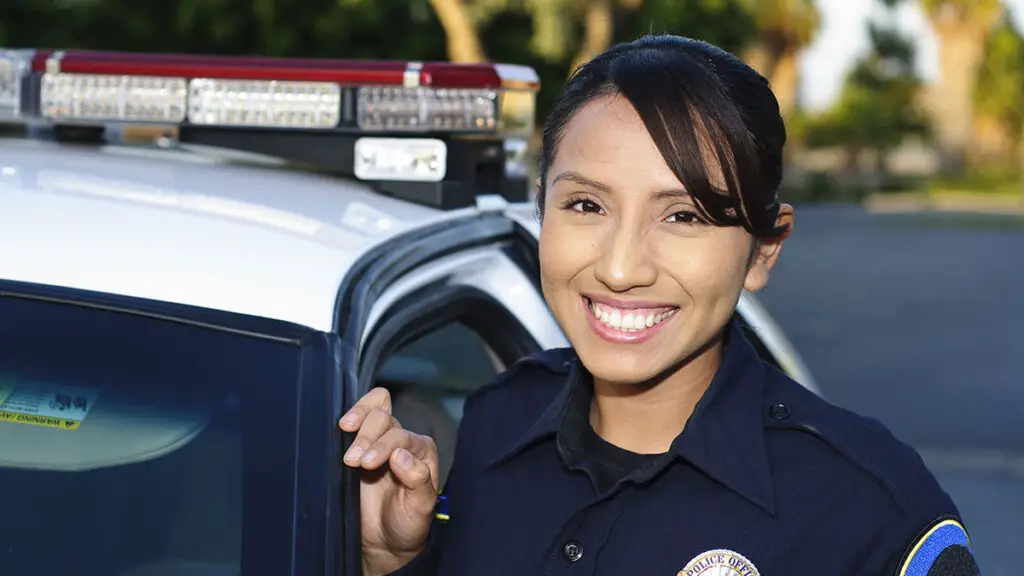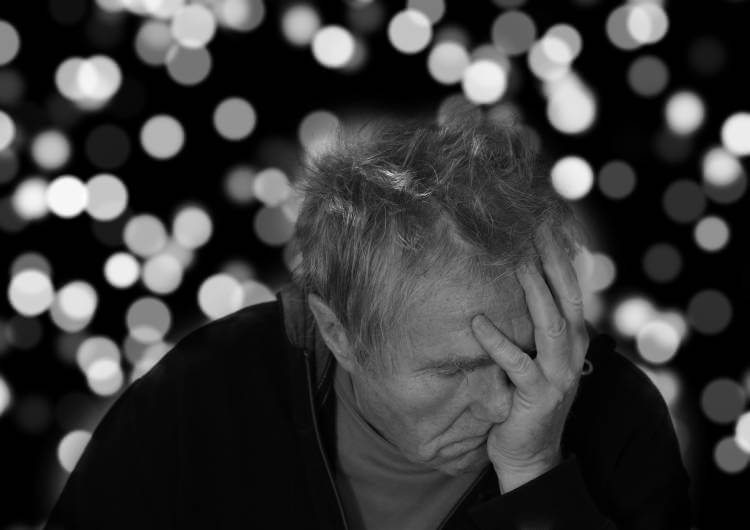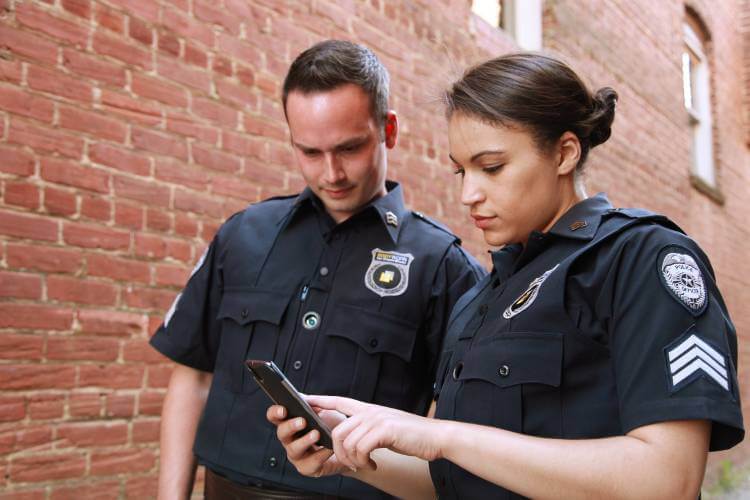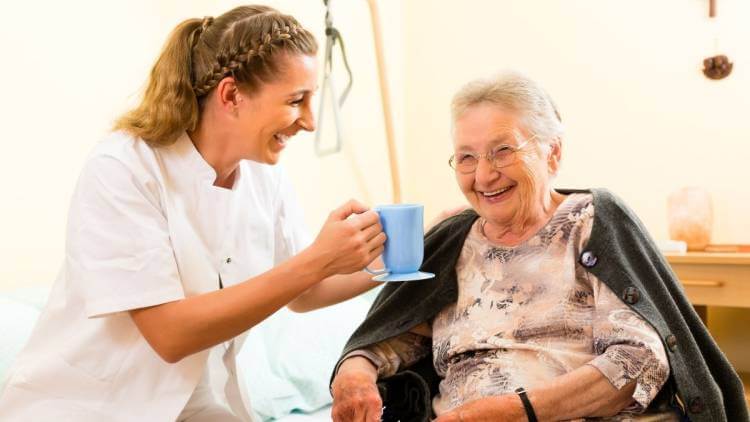Accidents happen. Unfortunately, other things can happen as well. If concerned that an elderly friend may not be doing well, a welfare check may be in order. For the uninitiated, however, this can prove to be a rather intimidating task.
If you cannot reach the person you are concerned about, the most reliable way to conduct a welfare check is to call the police.
Nobody wants to not take care of their friends. But if a friend is potentially in danger, oftentimes figuring out how to navigate through the legal framework and get the appropriate level of help (and what is the appropriate level of help?) can be rather confusing.
To help to cut through the conclusion, today we are going to look at just what you need to know to conduct a welfare check on seniors.
What Exactly is a Welfare Check?
A welfare check, also called a wellness check, is when police officers are called to the scene of somebody’s home to make sure that they are okay.
While there are a few reasons that somebody may request a welfare check (e.g., a teenager suspected of drug abuse, a suicidal man, etc.), within our context here, a welfare check is typically used to make sure that an elderly person is okay.
For example, let’s say that you live in a cul-de-sac. You know all your neighbors and regularly see 85-year-old Mr. Jones across the cul-de-sac sit on his front porch reading his newspaper and smoking a pipe every morning at 10:00 AM. He’s done this every day for the past 15 years. However, the past four days, Mr. Jones is conspicuously absent.
He won’t pick up his phone and nobody comes to the door when you knock. His car is still in the driveway. Situations like these are what wellness checks are for – to make sure that somebody is still okay.
Or perhaps 76-year-old Ms. Smith’s mailbox is packed full of days’ worth of mail, her grass hasn’t been cut in two weeks, and her trashcans have been sitting at the front of the street empty for several days now as well. None of this is normal behavior for her. She’s one of the most clean and organized people in the neighborhood.
Her car is still in the driveway, so she hasn’t gone anywhere, and you haven’t noticed anybody stopping by of late to pick her up. The only conclusion you can come to is that something is wrong with Ms. Smith, and your suspicions aren’t very hopeful. A knock on the door results in no answer, you shout out her name from the door to no response, and you don’t see her in the backyard either.
All of this has led you to believe that a wellness check is the only appropriate course of action that you have at your disposal left.
How to Perform a Welfare Check
For elders, these types of calls are made daily to make sure that somebody hasn’t fallen and broken a hip, taken the wrong medication, or worse.
Conducting a welfare check is not difficult. Start by trying to make contact by phone and/or knocking on their door. If this doesn’t work, you should call the police.
If no contact can be made, you may then seek to call your local police department. Your police will have two numbers that can be called: the 911 emergency number and the actual police department. Use discretion to determine which number should be called.
If suspected elder abuse is at hand, then do not attempt to conduct a wellness check of your own accord. Simply call either the police or social services. It is worth noting that these calls can be made anonymously. Police may state who has made the call unless the caller specifically requests to be kept anonymous.
Should the individual needing help likely be experiencing some type of medical condition, the caller is unlikely to be concerned with maintaining their anonymity. If a social services call needs to be made, maintaining one’s anonymity is a wise practice.
14 Signs a Welfare Check is Needed
What are some of the tell-tale signs that an elder may need a welfare check? Here are a few signs that may prove to be of use.
- Having not seen them engage in their usual habits of late.
- They are unavailable to be reached by phone, text, or by knocking at the front door.
- You can hear cries for help.
- Things are not as they typically are at the residence (e.g., the garage door is left open, and the individual is VERY particular about never leaving their garage door open.)
- The mailbox is stuffed full of mail, but the individual hasn’t traveled anywhere of late.
- Packages have been sitting by the front door for days.
- Trash cans have been sitting by the street for days.
- The grass has grown to be wildly unmanicured.
- The individual keeps showing strange bruises.
- The individual’s personality has changed.
- The individual has been depressed without apparent reason of late.
- The individual has been talking about suicide and the like a lot recently.
- The individual is in an altered state of consciousness (e.g., babbling strangely, but you don’t think it’s a stroke)
- You see a senior walking down the street looking visibly confused. This could be a sign of somebody with Alzheimer’s or dementia who is wandering.
For more detailed information of what are some of the clinical signs of elder abuse, we highly recommend that you also read our article the Elder Abuse Suspicion Index.
While it’s most certainly not a fun activity to have to engage in, sometimes it is a necessary activity to engage in. Seeing that somebody is still alive and okay is an act of love if there are suspicions that this may not be the case.
Calling the Police for a Welfare Check
With the typical “Are they still alright?” wellness check, police can be called to a home. Oftentimes, adult children living out of state might make a call to their parents’ local police station if they have reason to be concerned.
The adult child may have made several calls, sent several texts, and even asked a neighbor to knock on the front door. When this doesn’t yield a response, police departments are often contacted. Welfare checks are a routine duty of police officers. Don’t feel guilty about “wasting their time” should there be a suspicion that a friend is in danger.
Conducting wellness checks is a regular part of their job, and it is not uncommon for an officer to conduct multiple of these types of calls daily. In fact, Maine police even offered welfare check advice during the COVID-19 pandemic.
An officer will show up and knock at the door to conduct their wellness check. If they don’t receive a response, they will then “enter the property.” Naturally, they have the right and the means to undertake this when necessary.
Police have a right to enter a home without a warrant during a welfare check if they have reason to believe someone inside needs aid. Conducting a welfare check at the request of a neighbor, friend, or concerned relative is usually reason enough.
Locksmiths Can Help Police
Sometimes a locksmith is called to pick the door open, but it depends upon the mood and patience of the police officer. Locksmiths are frequently called to open doors for police to conduct wellness checks on individuals. As a private citizen, one should not call a locksmith to open the door to a friend’s house.
Doing so can not only potentially land you in legal trouble (think ‘breaking and entering’), but there may be a hefty service call bill for you once the locksmith has realized it’s not actually your house he is to open.
If the police don’t have the time or desire to wait for a locksmith, they will use a battering ram on the door. What will happen is truly up to the discretion of the officer. If the police break down the door, it is highly unlikely that they will pay for it. This is something to consider if there are lingering doubts as to whether the occupant just may be okay or not – especially if they are in dire financial straits.
Police don’t need a warrant to enter the premises either. There is some minor variation based upon locality, but typically, as long as an officer has a reasonable suspicion that somebody within the dwelling could be in immediate danger, they can legally enter the property without possessing a warrant.
If police find that the individual is alright, they will then leave (they won’t pay for any damage to the door). If the police find that the individual is not alright, they will either call for a medical team to arrive on-site, administer aid themselves, or call for an undertaker. In either case, police will likely notify the original caller of the outcome. (Though, in many cases the original caller is present for the duration of the wellness check.)
Should it be revealed that the individual is dead, you may want to begin by contacting their next of kin. The police will arrange for all services to remove the body from the scene and will begin the legal paperwork.
What is a Social Services Welfare Check?
Checking to see if somebody has fallen in their kitchen is one thing. There are darker forms of welfare checks, though. These are social services welfare checks. Unfortunately, seniors are commonly taken advantage of and abused. When this happens, there are often outward signs of elder abuse.
When an individual suspects that some form of elder abuse is taking place to one of their friends, calling social services is often the outcome. Social Services will then send an agent to the property to conduct an interview/investigation with all the parties involved. They will contact the alleged victim, contact those who are in regular contact with the alleged victim, and contact the original caller as well.
It can quickly end up being something of a messy situation, but if a friend is being physically abused by somebody else, this is likely one of the best courses of action to take. However, make certain that there is a reasonable suspicion of elder abuse before making this call. It goes without saying that these types of calls should never be done as a form of revenge (this is a good way to end up in a prison cell yourself), and that they are not to be made lightly.
One needs to have very good reason to believe that there is a form of elder abuse taking place. If you make the call in good faith and in possession of a reasonable suspicion of elder abuse but it is found that there is nothing wrong taking place, there will not be any legal action taken against you. You operated in good faith and used the knowledge that was at hand to take care of somebody when you thought they were in danger.
Summary
There does need to be a fair amount of discretion used with making welfare check calls. The potential caller must consider if the individual may truly be okay, did they travel out of town, do they need to maintain their anonymity, and so on.
If there is a reasonable suspicion that they may need help, however, to make that call is the correct call.
What are your thoughts on the situation? Are there other reasons one may want to call in for a welfare check for somebody? Have you ever had to do such? Has one ever been called on you – having given you insight that you wished the caller had thought through before they made the call?
Let us know your thoughts in the comment section below.





13 comments
For elderly without family, friends or neighbors, isn’t there a paid well-check-service agency whereby the ‘agency’ can check on an elderly to verify they are still living and/or if they need help?
I have a sister who is 61 year old. she lives in Maryland and I live in Austin Texas. She has become deathly ill. she isn’t answering the phone. I am worried. I talked with her yesterday and she didn’t want to go to the Emergency room but she can hardly walk.
Call for a welfare check, and get numbers of the neighbors.
what if the elderly gentlemen drinks non stop all day, threatens to shoot white people and yells at people who live in the same complex and are trying to park in the back parking area. His grandson is in and out all day, so grandpa just sits outside causing problems?
Sounds like a complaint to the police, but not a welfare check.
My 95 year old father was released from a skill nursing center A week ago and his wife 67 year old will not answer the calls and will not communicate with me nor my sister as to how he’s doing. I live about an hour away from him. Should I do a wellness chec?
If you think there are health concerns. If there are interpersonal problems between you and her, that’s different.
What about an 81 yr old husband who is mobile, lives in house with late 60s wife. House getting more hoarded every day. Outside looks fine. House has not been cleaned in 4 years as wife won’t let anyone in. Have talked many times to husband about wife’s depression, her not going out of house, sleeping all day, taking sleeping pills. Has cough from filthy house, gets codeine cough syrup from Concierge doctor. Husband won’t do anything. He is enabler. Wife calls friend saying how sick she is, and latest, “wish I could kill myself.” How do you help someone like that? They have no children. Wife has no relatives.
Hard to say. You can present the situation to a worker at the area agency on aging and see what they think, but if people are of sound mind and are making conscious decisions, there’s not usually a lot that can be done. They are free to live how they want in those situations.
How do I go about finding out if my mom is ok when my own sister won’t tell me what Nursing Home she has her in after calling multiple ones.
Can anyone give me some information on what recourse a person having welfare checks called on their household by over zealous and overly controlling family members? Especially when the investigative officer finds nothing wrong on repeated intrusive calls?
What I want to know if they take me out of my home on a welfare check where do they take me?
If you’re alive and well and of sound mind, they won’t take you anywhere.